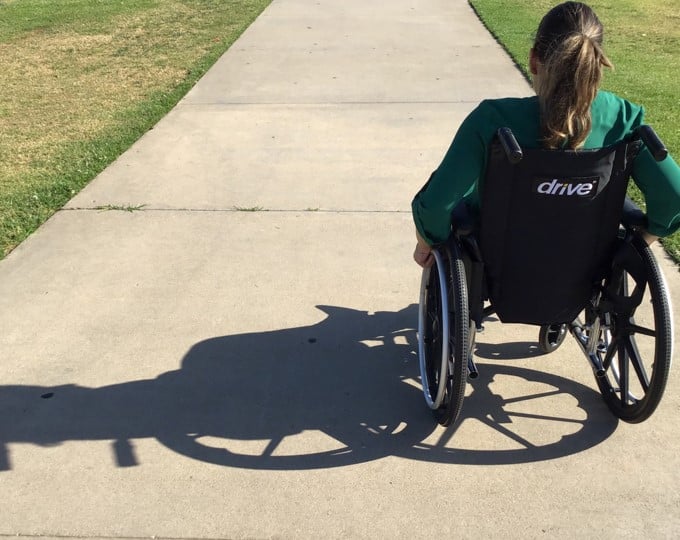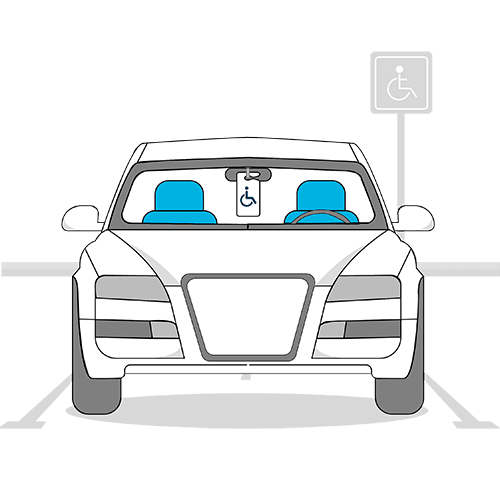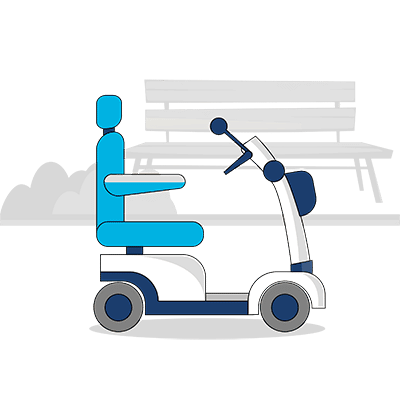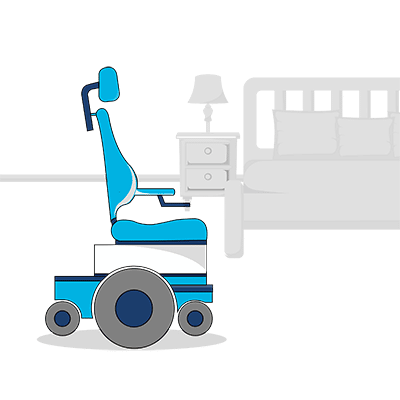As an NDIS participant, you’ll usually attend an NDIS review meeting on a fairly regular basis. This is where your NDIS plan, goals, funding and broader life circumstances are reviewed ahead of your next plan.
If you’re feeling anxious about it, we’re here to explain exactly what happens at these NDIS review meetings, as well as what you should prepare and bring with you.
This article covers the regular, scheduled NDIS review. Read our two-part series if you want to request an early NDIS plan review. But if your scheduled NDIS review is coming up, here’s the gist of what you need to know.
What is an NDIS review?
The review itself is usually a meeting with a Local Area Coordinator (LAC) or NDIA planner. Or, in the case of a child under the age of 7 years, an Early Childhood Partner (if this is you read our article on NDIS early childhood early intervention access after your child turns seven).
It can be conducted face to face, over the phone, or at an NDIA office. You can bring along another person like a friend or family member if you wish.
The goal is to review and discuss your plan as it stands and where it needs tweaking to help you move further towards your goals, or towards any new goals. You’ll also discuss your current health, wellbeing and other life circumstances as well as your family/community supports, to update your plan profile where necessary.
Let’s look at the NDIS plan review in more depth.

When will I have an NDIS review?
Your scheduled review is usually held yearly or every two years. Most NDIS participants will have them yearly. The review is planned in advance. It’ll very likely happen close to the date where your current plan ends.
Know that it’s not your responsibility to chase the NDIA for your scheduled plan review. If it’s slow to be booked in, your current plan period must be extended until your LAC/similar can work through the review process with you.
What happens at the NDIS review meeting?
So, what actually happens at an NDIS review?
Firstly, as mentioned, you’ll talk through your current situation. In doing so you’ll reassert why you need NDIS support.
Then, you’ll discuss how the supports and activities your last plan made possible have helped you achieve or make progress towards the goals set out in it. The review will help the NDIA to measure this success (or lack of it), and understand any changes needed to future plans. Which brings us to…
You’ll also discuss what you want to achieve within your next plan period – your NDIS goals. You may be planning to keep all your current plan goals, change a few or (much less likely) make a whole new set of goals. Importantly, you’ll also give your feedback on what categories you think you need more or less funding in. Where you need the most investment to ‘live your best life’, so to speak.
Also note the word ‘plan’ in the above paragraph. Identifying these areas is something you should have gone through beforehand with any therapists, assistive technology (AT) suppliers, support workers and other service providers you work with.
Review time is one of the best opportunities for NDIS participants to speak up. Arrive with as much information as possible, including documentary evidence to support your needs. And make sure you point out any gaps in your current plan.
Things to discuss at your NDIS plan review
Each plan review will be slightly different depending on your personal circumstances.
Regardless, it’s a good opportunity for you to make sure any concerns or hopes you have are heard. And to discuss what did and didn’t work, as well as where you’re at with short- and long-term goals.
Some things you should discuss at your NDIS review include:
- What did and didn’t work in your plan?
- Which goals did you achieve? Are you making progress on the others? What needs tweaking?
- Have your circumstances changed? Maybe your disability has evolved, your support network is different, or you’ve had changes in other personal circumstances?
- Would you like to switch to a different plan management option?
- What support gaps are there in your plan?
- What goals do you have for your next plan? For example, are you now able to pursue employment, training, or education?
- What funding needs do you have for the next plan period?
- Do you have any other feedback for the NDIA or your LAC/similar?
These are just some questions that you might ask or want to discuss at your review. There may be more or less, depending on your needs.

Do I need to prepare for my plan review?
Yes, being prepared for your NDIS review will certainly make the process smoother. If you’re well prepared, you stand a better chance of being allocated the funding you require for your next plan.
And the right funding in the right categories… Anyone who’s had to ask for an early plan review due to incorrect funding allocation may tell you in was a not-so-simple process.
Aside from thinking about the questions above, read on to uncover what you can do to prepare for your appointment. And here’s some advice from an NDIS guru on how to get the most out of your NDIS review meeting.
What you can do before your NDIS review
One of the essential parts of review meeting prep is to think about your new plan goals. If you need a bit of a refresher, read our article on setting your NDIS plan goals.
1 – Goals
Getting your goals right is really important because it helps determine what funding you’ll receive with your new plan, and in what categories. Take plenty of time to think carefully about this before you attend the review. Have your reasoning ready for why you need to work towards each goal – what’s the outcome you’re hoping to achieve? You could even ask your therapists, AT suppliers and any other service providers to help you formulate your goals and the more detailed explanation that goes with each.
2 – Plan management
Consider whether you’re happy with your plan management option. Review how it’s worked for you and whether you’d like more flexibility or less responsibility. Not sure about the pros and cons of self-managed, NDIA managed, plan managed? Read more about NDIS plan management options. And perhaps you’ll decide you need even more support, via an NDIS support coordinator or NDIS plan manager.
3 – Expectations
Consider your future. This means contemplating any expected changes to your condition, or the proactive changes you’ll make to your life circumstances in the next couple of years. Consider how your internal support network might evolve, and how connected you are to your community. This can help to inform your next NDIS plan and will be relevant during your review.
4 – Funding
Think long and hard about your funding. Was there enough last time around? Was it correctly allocated? What do you need in the next plan to get the best support possible to achieve your next plan’s goals?
And finally, try to relax. You can only control so much. What you can do is be as prepared as possible… And push your points where necessary.
What should I take with me?
There are a few documents you should bring with you to your plan review meeting. Be sure to have at your fingertips:
- A copy of your NDIS plan and your notes again each section.
- A list of the goals you want to work towards in your next plan, and why these will benefit your life.
- Information, assessments, reports and quotes from your service providers. This can detail what supports they’ve delivered, how they’ve helped you, and recommendations for supports you need going forward.
- Determination to get your needs met in the next plan period.
- A support person to bring along if you need them.
Once you have the relevant documents and information, you can start to look more holistically at your meeting. Is everything ready to go? Do you know what you need to say and why? And do you have the evidence to support it?
You might qualify for Blue Badge Insurance products
If you’re an NDIS participant, Blue Badge Insurance’s range of disability-specific insurance products may be of interest. We offer specialised insurance for your wheelchair, disability converted car and mobility scooter.
Plus, if you’re a disability parking permit holder, you can get comprehensive car insurance with us at competitive rates.
NDIS review – over to you
Have you got any insider tips to share with fellow NDIS participants on how to prepare for a plan review meeting? Let us know over on our Facebook page.








